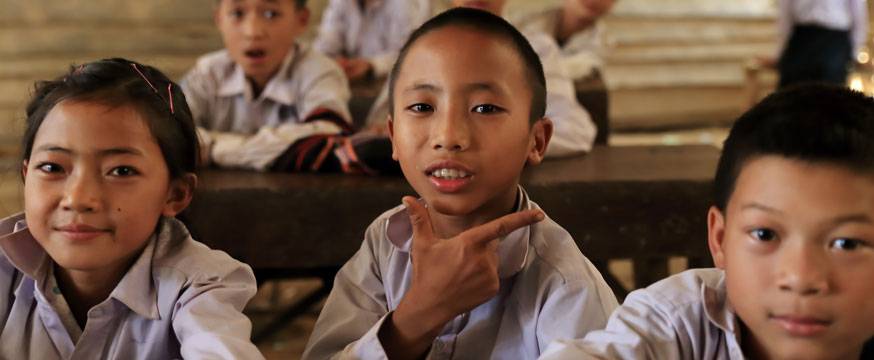
Measuring childhood learning in South East Asia
Research 13 Mar 2018 3 minute readA primary learning assessment program is helping to set a common approach to measuring education outcomes in South East Asia. Jacqueline Cheng explains.
Field trials of the South East Asia Primary Learning Metric (SEA-PLM) for Grade 5 students are almost complete. A collaboration between the Australian Council for Educational Research (ACER) and the Southeast Asian Ministers of Education Organization (SEAMEO), UNICEF and Ministries of Education in participating countries, SEA-PLM was designed to provide culturally relevant assessment tools to measure the learning achievement of primary students across the region.
SEA-PLM tests Grade 5 students in numeracy, literacy and global citizenship but contextualises their results using information on students’ home and family circumstances, as well as teaching practices and learning facilities. This information comes from responses to questionnaires issued to students, parents, teachers and schools.
In addition to student testing, SEA-PLM involves a series of regional and in-country capacity-building activities designed to ensure a uniform approach to sampling, data management, item development and coding, translation, and test administration. Because the numeracy, literacy and global citizenship metrics were newly developed, field trials aimed to test their reliability and validity in each domain, as well as the implementation process.
Phase one took place in 2014–16 in Brunei Darussalam, Cambodia, the Lao People’s Democratic Republic and the Republic of the Union of Myanmar. Phase two began in 2017 in Vietnam, the Philippines and Malaysia and is nearly complete. Additionally, Timor Leste has recently participated in a full country-level analysis of its capacity to undertake large-scale student assessment initiatives as part of SEA-PLM.
The primary goal of SEA-PLM is to provide valid and reliable data that can be used by participating governments to:
- Report against the United Nations Sustainable Development Goal 4.1 to ensure that by 2030 all girls and boys complete free and equitable primary and secondary education leading to relevant and effective learning outcomes
- Help identify ways, through teacher training and curriculum development, to improve their education systems
- Achieve national education policy objectives.
Final analysis of field trial results will be completed by August 2018, with the first stage of the main survey to be conducted in early 2019.
Further information:
SEA-PLM is an initiative by the Southeast Asian Ministers of Education (SEAMEO), co-funded by UNICEF and the Ministries of Education in participating countries. ACER is the technical partner for SEA-PLM, providing expertise in capacity-building activities including the development of test items, test administration and coder and data entry training. The ACER team is led by Education and Development Research Director Jeaniene Spink. For more about SEA-PLM: www.seaplm.org/
Read more:
Find more information on ACER’s work on monitoring trends in educational growth through the Centre for Global Education Monitoring.
Find more information on ACER’s work on assessment reform through the Centre for Assessment Reform and Innovation.
